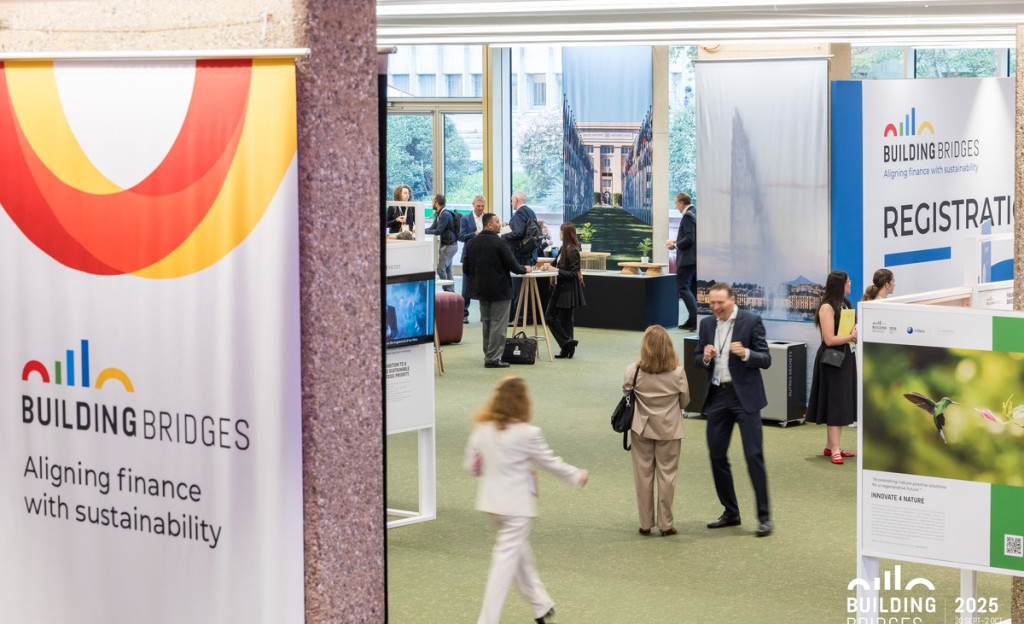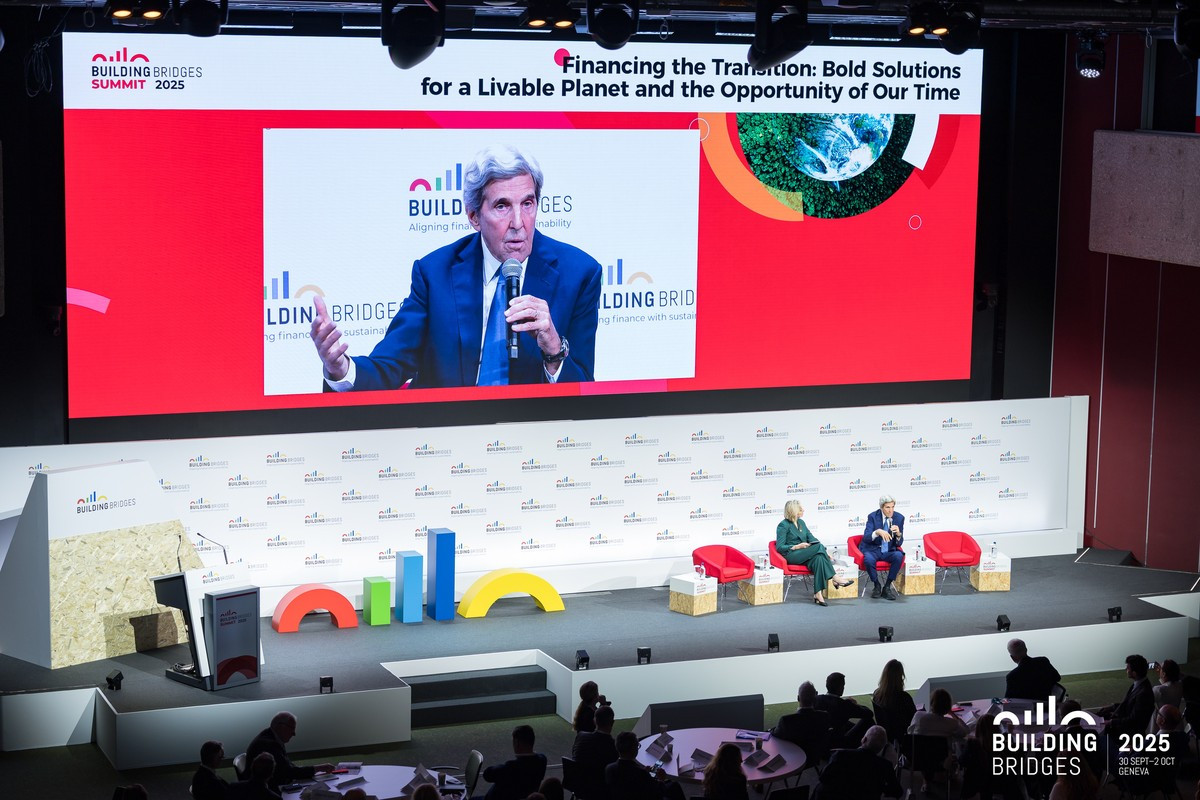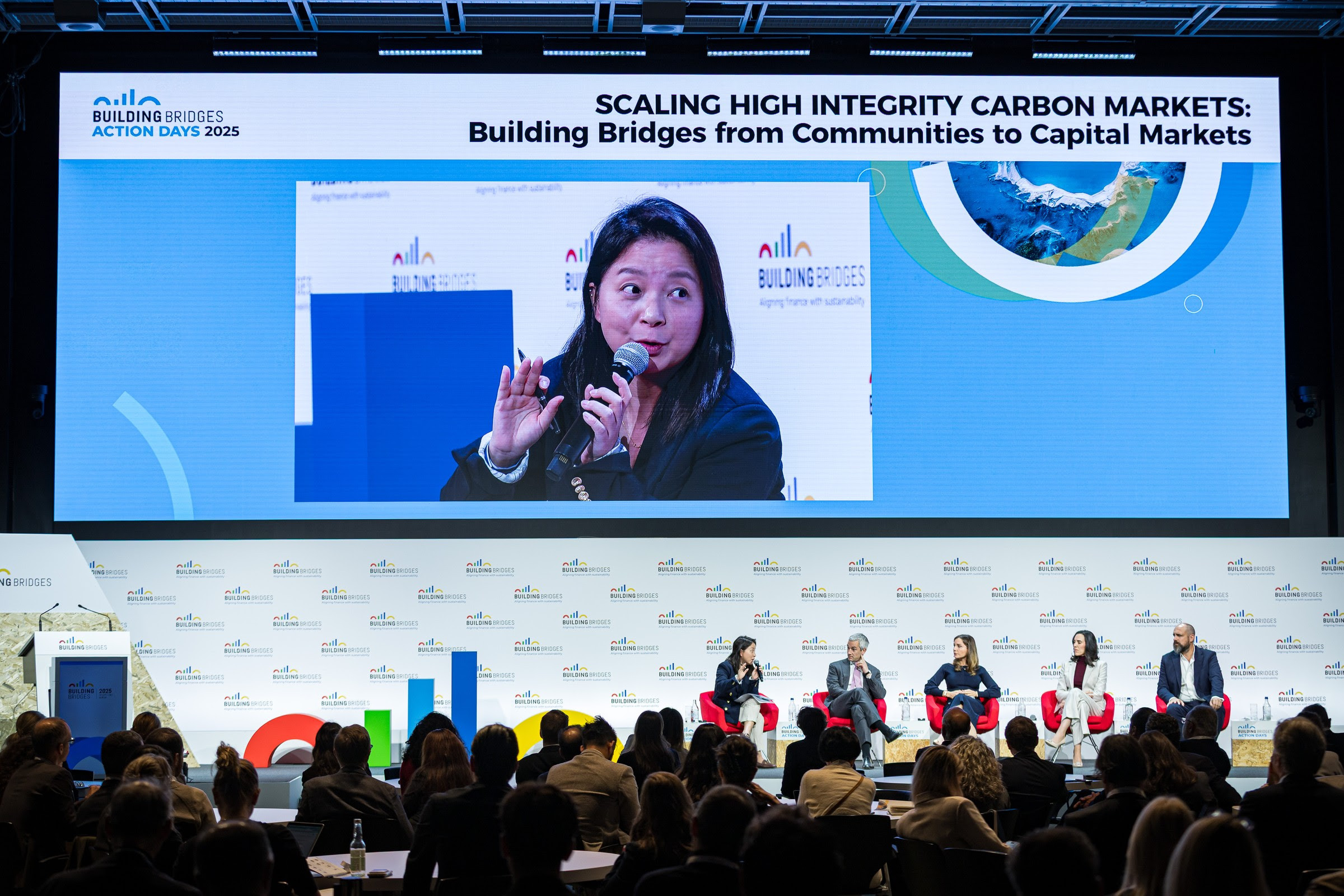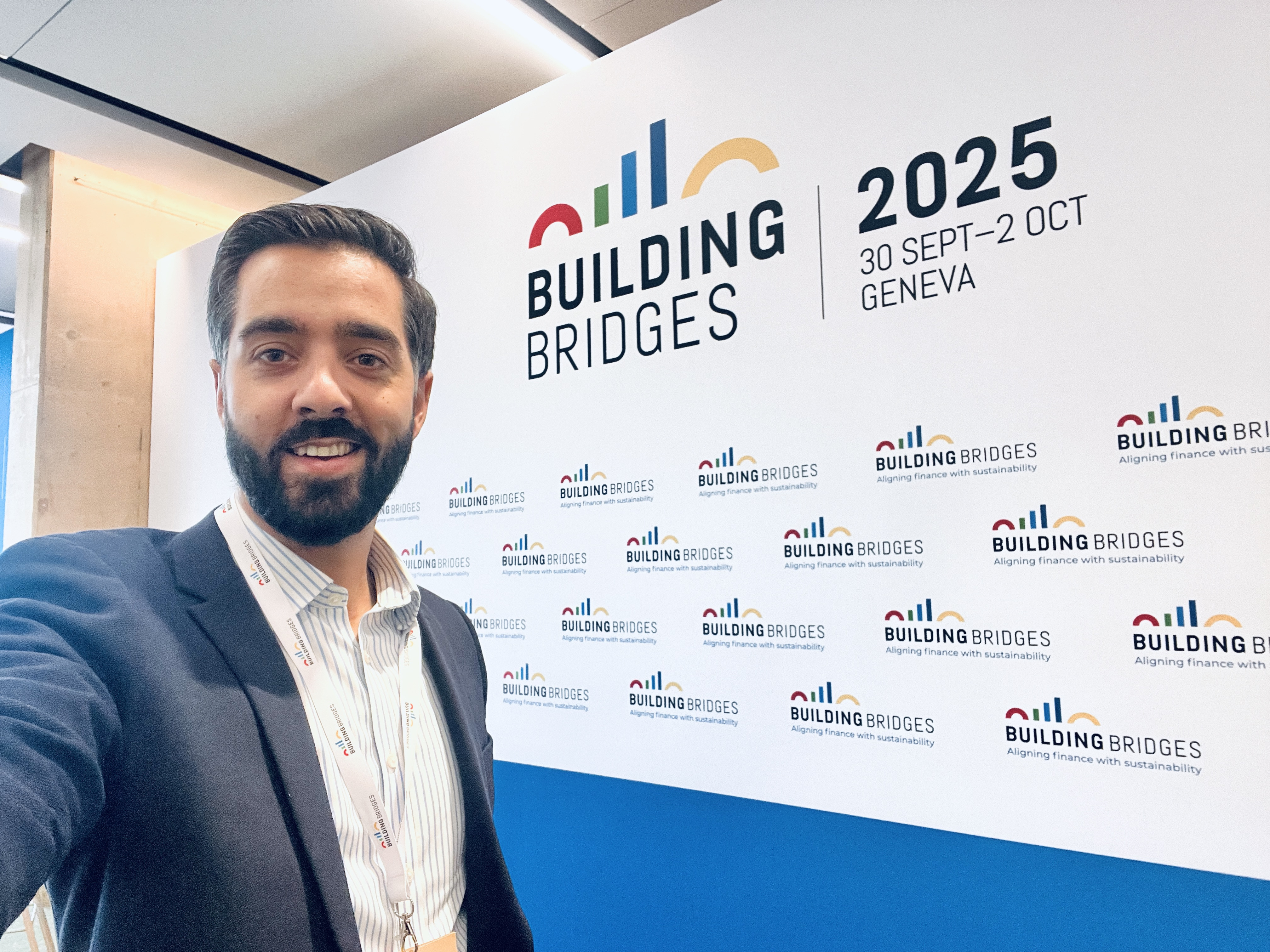Reading Time: 4min

Former United States Climate Ambassador John Kerry addressed the audience on Day 1, sharing his view on the energy transition as a great opportunity for the economy and investors.
“It is the biggest economic transformation since the Industrial Revolution,” he told the Building Bridges sustainability conference in Geneva.

“The CEOs I spoke to last week at Climate Week in New York all talked about major investments in sustainability.”
This shows that the narrative for sustainable investments does not need to rely only on planetary urgencies but also on real business cases for future-proof investments.
Carbon markets commanded center stage this year, signaling their shift from a niche mechanism to a serious, investable asset class. The consensus was clear: the question is not whether carbon markets are legitimate, but how to ensure they are robust enough to handle billions in investment.
As Maggie Kim, CEO of Gold Standard, perfectly captured the central issue: “Integrity has to flow all throughout the value chain of carbon markets — from project design to registries and trading, right through to the claims.”

This focus on end-to-end integrity is precisely where Planet2050 concentrates its efforts, demanding the highest certification standards and leveraging digital Measurement, Reporting and Verification tools.
The next challenge is translating project integrity into investment proposals for private capital market - exactly the type of bridge we are building at Planet2050!
A strong parallel theme running throughout the week was the elevation of nature and biodiversity. Capital must urgently begin to value ecosystems not as externalities or nice-to-haves, but as critical assets essential for resilience and profitability. Discussions on tools like debt-for-nature swaps and biodiversity risk models reinforced this transition.
A key takeaway highlighted the necessity of partnership: “These deals only work when governments, investors, and multilateral institutions sit at the same table — it’s a true partnership.”
Preserving and Restoring nature brings various co-benefits beyond carbon. This presents an opportunity to create partnerships between actors willing to support social impact metrics (e.g. job creation, gender, health benefits and community resilience) leveraging the interest of private investors participating in market-based instruments such as carbon markets.
The discussions on emerging markets and developing economies were a powerful call for courage and innovation in capital allocation. These regions represent the highest climate need and the greatest opportunity for transformative impact.
We were reminded that “Frontier markets are where both the need and the opportunity are greatest. Blended finance is the bridge that gets us there.”
Innovative financial tools—including guarantees, first-loss provisions, and impact-linked loans—are the structures that de-risk these essential projects and unlock the hesitant private investment required to scale. Planet2050 is focused on deploying these solutions to ensure our capital reaches the most impactful, early-stage climate ventures.
Two distinct threads—law and innovation—were repeatedly identified as crucial enablers of the Trust lever:
Regulation (Law)
New directives are becoming direct drivers of capital flow. As one participant warned: “If investors cannot trust ESG data, they cannot allocate capital with confidence. Credibility in disclosure is the bedrock of scale.” Regulation provides the comparability and assurance necessary for large institutions to allocate capital with conviction.
In Carbon Markets, regulations help move a space which was once of a voluntary nature to a mature market pushed by new laws with carbon taxes, trading schemes and mandates from governments.
According to MSCI’s research on Global Carbon Credit Market, 40% of all transactions up to 2040 will have certain link to regulation.
Technology (dMRV/AI)
Sessions on AI were at full capacity, underscoring the appetite for solutions that “bring the knowledge needed to advance sustainability to the right person, at the right place, at the right time.”
This confirms the urgency of our work on Digital MRV such as the BioCarbon’s Working Group: leveraging AI and remote sensing is non-negotiable for delivering the high-integrity, transparent data that the market now demands.

Closing remarks from Lucas Zaehringer, Planet2050’s CEO
“No one can fight the climate battle alone. We have to use the whole blend of instruments working today, using private or public capital. Or the alliance of both.
At Planet2050, we embrace our unique role in this context, by building bridges between private investors and carbon projects developing verified, systemic climate solutions, thereby creating a new Global Standard for Climate Capital”.